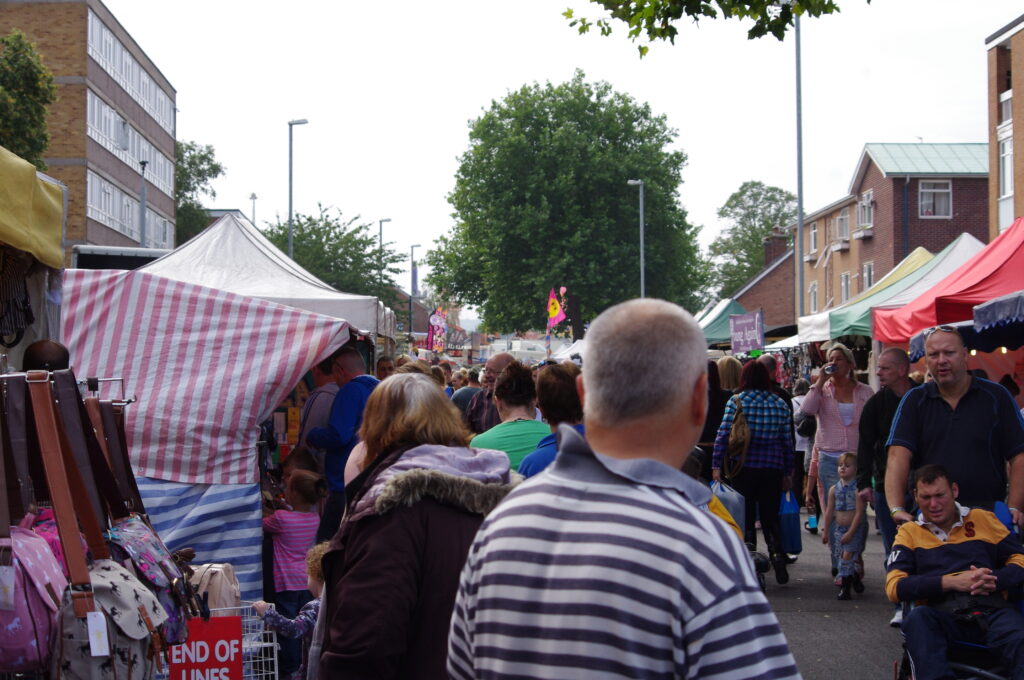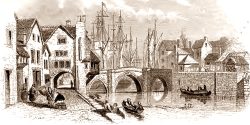MARKETS (Charter) mercatum, granted 26 Jun 1200, by King John to William Briwerr. Day of the market not given (RCh, p. 73a). On 22 Aug 1221, King Henry III granted William Briwer that he could change his Thursday market to a Monday market (RLC, i, p. 469). In 1280, Roger de Mortuomari and Milisent, who was the wife of Eudo de la Zuche, were summoned to show by what warrant they claimed a market in Bridgwater (QW, p. 693). Market held by William de Mortuo Mari recorded on 30 Jun 1297 (CIPM, iii, no. 408). William de Mortimer’s wife was the heiress of William Brewer (VCH Somerset, vi, p. 208).
MARKETS (Charter) Saturday; granted 18 Jun 1468, by King Edward IV to mayor, bailiffs and burgesses of Bridgwater. To be held in the town (CChR, 1427-1516, p. 229). Day of market appears to have changed to Thurs by late sixteenth century (VCH Somerset, vi, p. 216).
FAIR (Charter) Held on the Nativity day of John the Baptist (24 June) and then seven additional days ; feria, granted 26 Jun 1200, by King John to William Briwerr (RCh, p. 73a). Fair held by William de Mortuo Mari recorded on 30 Jun 1297 (CIPM, iii, no. 408). No merchants came to the fair c.1359, after which it appears to have fallen into disuse. It was granted again in 1587 and continued into the nineteenth century (VCH Somerset, vi, p. 217).
FAIR (Prescriptive) Feast of Saint Matthew (21 September); first recorded 1249, held by lords of Bridgwater. Fair appears to have been held in the early fifteenth century. Although not mentioned in the charter of 1468, it was confirmed in 1587 and continued into the eighteenth century (VCH Somerset, vi, p. 217).
FAIR (Prescriptive) Ascension (Easter dependent); first recorded 1358, held by lords of Bridgwater. Recorded in 1405 (VCH Somerset, vi, p. 217).
FAIR (Prescriptive) Whitsun (Easter dependent); first recorded in 1358, held by lords of Bridgwater. Recorded in 1403, but not in 1405 (VCH Somerset, vi, p. 217).
FAIR (Charter) The first Monday after Lent and then the following four days (Easter dependent); granted 18 June 1468, by King Edward IV to mayor, bailiffs and burgesses of Bridgwater, to be held at the town (CChR, 1427-1516, p. 229). Confirmed in 1587, the fair continued into the eighteenth century (VCH Somerset, vi, p. 217).
In 1280, Roger de Mortuomari and Milisent, who was the wife of Eudo de la Zuche, were summoned to show by what warrant they claimed a fair in Bridgwater (QW, p. 693). This could relate to the fair on Nativity of John the Baptist, or to the fair at Matthew.
The above taken from from http://www.history.ac.uk/cmh/gaz/somer.html
St Matthew’s Fair
This is the only fair which continues to be held in Bridgwater. It takes place at the end of September annually. The fair has been traditionally held in St Matthew’s Field, and the location is specified in the Borough Charters.
Queen Elizabeth’s Charter 1587
“.. another in the feast of St Matthew the apostle which fair at the feast of St Matthew so to be holden it shall be lawfull to the the said Mayor Alderman and Burgessess and their successors to hold keep in a certain field without Westgate there called Matthews field..”
Charter of James I 1614 “.. in the aforesaid field without West gate there called Matthew’s Field ..to begin early in the feast day of St Matthew the apostle, and by all that day or feast, and by two days next immediately following to be kept to continue and endure..”
Charter of Charles I 1628 “A Fair to be held within the Borough in the field without the West Gate called Matthew’s Field to be yearly on the Feast-day of St Matthew the Apostle and on the two following days.”
In Jarman’s History of Bridgwater, 2nd Ed. 1889 p258, St Matthew’s Fair is mentioned: “Previous to its being held in the field to which it gives its name it took place annually in a meadow called ‘The Friars’ in Friarn-street.” However, this was not long-lived, for the Fair reverted to the traditional location in the 20th C.

See the text of the respective charters here.
Dr Peter Cattermole 31 January 2013.
